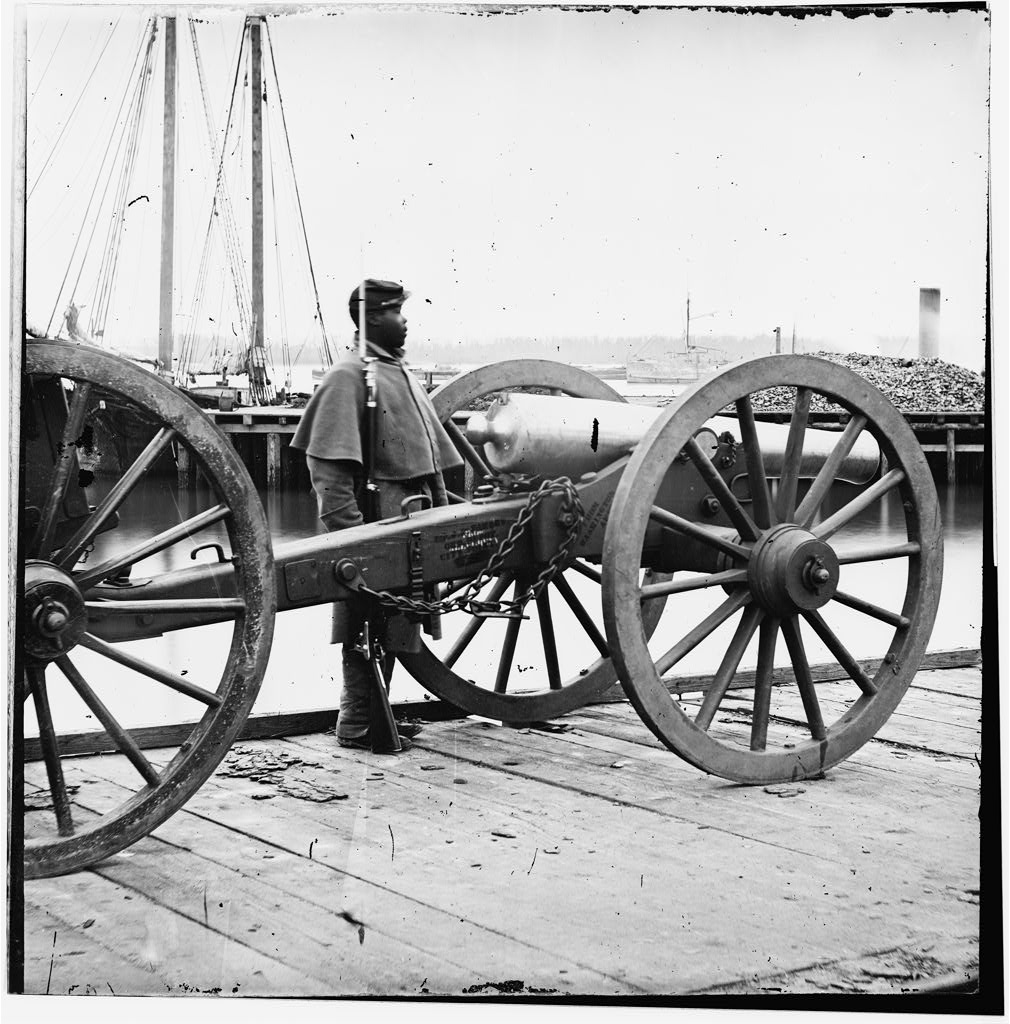Civil War: The Struggle for Equal Pay
By Sara Nazarian
When the Emancipation Proclamation was enacted on January 1, 1863, it opened the door for thousands of Africans Americans to enlist in the Union Army. Along with problems that all soldiers faced during the war, black soldiers suffered from discrimination, especially in terms of pay. The Militia Act of 1862 set African American pay at $10 a month, with $3 taken out for clothing. Meanwhile, white soldiers were paid $13 a month, with no amount taken out for clothing. The act was set in place in order to appease white Northerners who believed that white soldiers should be officially recognized as superior to black soldiers.1
Black Americans resented and resisted this treatment. A black soldier, Private Sylvester Ray of the Second US Colored Cavalry, refused to accept less pay than white soldiers and threatened the officer who ordered him to do so. Soldiers protested in groups, the most famous being the alleged mutiny led by Sergeant William Walker of the Third South Carolina Colored Infantry. Officials charged Walker with taking over the regiment and leading his men in a strike, stating that the men "would not do duty any longer for 7 dollars per month." He was convicted and executed before President Lincoln could review the case.2
The Fifty-fourth Massachusetts Infantry Regiment (Colored) was particularly vocal in their opposition to the pay discrimination. Members of the regiment protested by refusing pay for a year. Corporal James Henry Gooding, a black soldier from the Fifty-fourth, wrote an eloquent letter to the President himself protesting the unequal pay in 1863. He argued that if the Union is relying on blacks to be soldiers and provide “more food for its ravenous maw,” then blacks should receive pay equal to that of whites. Other black soldiers wrote letters to newspapers protesting this action.3
Many white military officials and politicians protested against this discriminatory pay. Governor John Albion Andrew of Massachusetts wrote repeatedly to Lincoln pressing the case. He pushed a bill through the Massachusetts legislature that allowed the state to make up the difference in pay for the Fifty-fourth and Fifty-fifth Massachusetts Infantry (Colored). The Fifty-fourth refused to accept state compensation because the federal government promised black soldiers’ equal treatment.4
After much debate in Congress, legislators responded with the passage of a bill equalizing pay for black soldiers on June 15, 1864, retroactive to January 1, 1864. They decided that all black soldiers who were mustered in under the Militia Act of 1862 or who were freed before April 19, 1864 were entitled to the pay of $13.5
Endnotes
1 “The Militia Act of 1862,” Freedmen and Southern Society Project, accessed July 29, 2019, http://www.freedmen.umd.edu/milact.htm; “African American Soldiers During the Civil War,” Civil War and Reconstruction, 1861-1877, Library of Congress, accessed July 29, 2019, http://www.loc.gov/teachers/classroommaterials/presentationsandactivities/presentations/timeline/civilwar/aasoldrs/; “Pay and Promotion,” Civil War, Mr. Lincoln and Freedom, http://www.mrlincolnandfreedom.org/civil-war/black-soldiers/pay-and-promotion/.
2“Sergeant Francis Fletcher of the 54th Massachusetts on equal pay for black soldiers, 1864,” History Now, The Gilder Lehrman Institute of American History, accessed July 22, 2019, https://www.gilderlehrman.org/content/sergeant-francis-fletcher-54th-massachusetts-equal-pay-black-soldiers-1864. “Stories about The Court Martial of William Walker, 3rd. SC Colored Infantry,” Fold3.com, accessed August 6, 2019, https://www.fold3.com/page/750-the-court-martial-of-william-walker-3rd-sc-colored-infantry
3 “The Civil War and emancipation,” Africans in America, PBS, accessed July 29, 2019, https://www.pbs.org/wgbh/aia/part4/4p2967.html; Corporal James Henry Gooding, “On the Altar of Freedom: A Black Soldier’s Civil War Letters From the Front,” edited by Virginia M. Adams, (Massachusetts: University of Massachusetts Press, 1991), 119.
4 “Pay and Promotion,” Mr. Lincoln and Freedom; Corporal James Henry Gooding, “On the Altar of Freedom,” 122.
5 “The Militia Act of 1862,” Freedmen and Southern Society Project; “Law Equalizing the Pay of Black Soldiers,” Freedmen and Southern Society Project, accessed July 29, 2019, http://www.freedmen.umd.edu/equalpay.htm; Ira Berlin, Freedom: A Documentary History of Emancipation 1861-1867: Series 11: The Black Military Experience (New York: Cambridge University Press, 1982), 367.
© 2019, University of Central Florida



